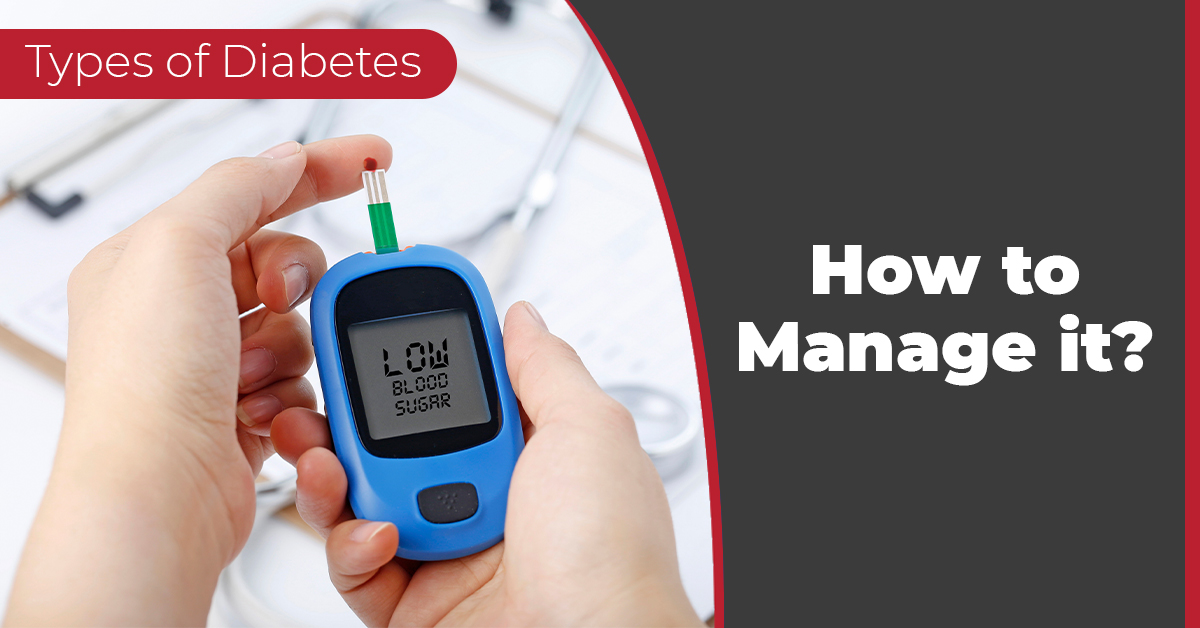
What is Diabetes?
Diabetes is a medical condition where blood sugar levels are constantly higher than the normal range for an extended period. It is a chronic condition but needn’t be worried about as it can be managed through proper diet and medication. Insulin is a hormone produced by the pancreas that helps the body in the process of blood sugar regulation. When it comes to a diabetic person, one possibility would be the pancreas not producing enough insulin for the glucose to be regulated. There might be another possibility where the body does not use the produced insulin effectively to regulate blood sugar levels.
Types of Diabetes
Moving ahead to the types of Diabetes, there are four types. They are as follows –
Type 1 Diabetes
Type 1 Diabetes requires constant insulin administration because the pancreas does not produce enough insulin to process the glucose in the blood. The symptoms of Type 1 Diabetes include frequent urination, an unusual feeling of hunger, feeling thirsty frequently, change in vision, weight loss, and fatigue. The causes of Type 1 Diabetes are still unknown.
Type 2 Diabetes
Type 2 Diabetes is also known as Non-Insulin-Dependent Diabetes. The body can not effectively use the insulin the pancreas produces to regulate blood glucose levels. More than 95% of the people across the globe who suffer from diabetes have Type 2 Diabetes. Type 2 Diabetes is usually a result of excess body weight and physical inactivity. The symptoms of type 2 diabetes are similar to type 1 diabetes but are not as prevalent. Due to this, the condition is diagnosed at a much later stage when complications have already arisen. Both Type 1 and Type 2 Diabetes can be controlled by a proper diet, regular exercise, and regular medication for long periods as they are chronic conditions.
Gestational Diabetes
Gestational Diabetes can be riskier than Type 1 or Type 2 Diabetes but it can be managed through medication and diet. The causes of Gestational Diabetes are yet unknown. It is observed in pregnant women that may lead the child even to have Diabetes at later stages of adulthood or have complications during pregnancy. The placenta supports the fetus as it grows. These hormones also block the insulin in the mother’s body, causing insulin resistance. Often, the mother needs three times more insulin to process the glucose.
Gestational Diabetes can be prevented by closely following your doctor for a healthy pregnancy, delivery, and baby.
Impaired Glucose Tolerance (IGT) Impaired Fasting Glycaemia (IFG)
Impaired Glucose Tolerance (IGT) and Impaired Fasting Glycaemia (IFG) are the conditions that present in the transition between Normalcy and Diabetes. IGT and IFT have a high chance of transitioning to Type 2 Diabetes. IGT and IFT are chronic conditions like Type 1 and Type 2 Diabetes. Moreover, it’s not linked to weight loss or weight gain. Regular Exercise and a strict, controlled diet can help prevent IGT and IFT from transitioning into Type 2 Diabetes.
The Department of Internal Medicine at Regency Health strives to be very Patient-Centric. Our Expert Doctors and Highly Trained Staff make sure you receive the best Care for any chronic condition you have.

 Call-an-Ambulance
Call-an-Ambulance



